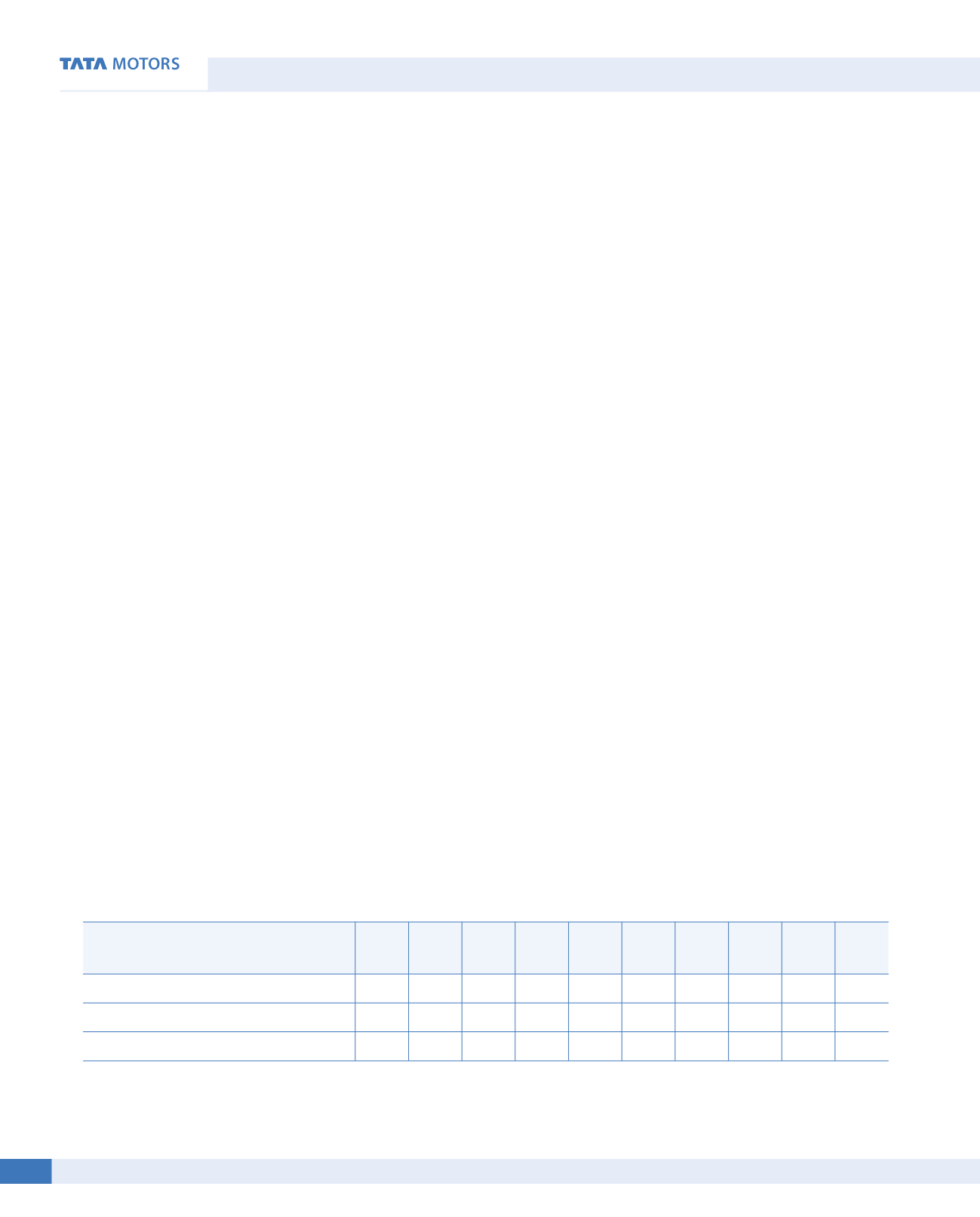

year, Company may declare dividend out of free reserves,
subject to fulfilment of conditions specified under the Act, as
amended from time to time.
C. Company may, in certain cases, declare dividend using a
combination of A and B above.
6) PARAMETERS
TO
BE
CONSIDERED
WHILE
RECOMMENDING/DECLARING DIVIDEND
The Board while determining quantum of the dividend payout
to the shareholders, will consider following internal and external
factors:
Internal Factors:
•
Profits earned and available for distribution during the
financial year
•
Accumulated reserves, including retained earnings
•
Mandatory transfer of Profits earned to specific reserves, such
as Debenture Redemption Reserve, etc.
•
Past dividend trends – rate of dividend, EPS and payout ratio,
etc.
•
Earning Stability
•
Future Capital Expenditure requirement of the Company
•
Growth plans, both organic and inorganic
•
Capital restructuring, Debt reduction, Capitalisation of shares
•
Crystallization of contingent liabilities of the Company
•
Profit earned under the Consolidated Financial Statement
•
Cash Flows
•
Current and projected Cash Balance and Company’s working
capital requirements.
•
Covenants in loan agreements, Debt servicing obligations
and Debt maturity profile.
External Factors:
•
Economic environment, both domestic and global.
•
Unfavorable market conditions
•
Changes in Government policies and regulatory provisions
•
Cost of raising funds from alternate sources
•
Inflation rates
•
Sense of shareholders’ expectations
•
Cost of external financing
7) CIRCUMSTANCES UNDERWHICHTHE SHAREHOLDERS
OF THE COMPANY MAY OR MAY NOT EXPECT
DIVIDEND
The decision regarding dividend payout is a crucial decision
as it determines the amount of profit to be distributed among
shareholders and amount of profit to be retained in business.
Hence, the shareholders of the Company may expect dividend
only if the Company is having surplus funds after providing for
all the expenses, depreciation, etc., and after complying with the
statutory requirements under the Applicable Laws.
The shareholders of the Company may not expect dividend in
the following circumstances, subject to the discretion of the
Board of Directors:
•
the Company has inadequacy of profits or incurs losses for
the Financial Year;
•
the Company undertakes /proposes to undertake a
significant expansion project requiring higher allocation of
capital;
•
the Company undertakes /proposes to undertake any
acquisitions or joint arrangements requiring significant
allocation of capital.
•
the Company has significantly higher working capital
requirement affecting free cash flow.
•
the Company proposes to utilize surplus cash for buy- back
of securities;
•
the Company is prohibited to recommend/declare dividend
by any regulatory body.
The Board may also not recommend a dividend on considering
any compelling factors/parameters mentioned in point 6 above.
8) QUANTUM, MANNER AND TIMELINES FOR DIVIDEND PAYOUT
Quantum:
The dividend history of the Company over the past 10 years is as follows:
Particulars
FY
06-07
FY
07-08
FY
08-09
FY
09-10
FY
10-11
FY
11-12
FY
12-13
FY
13-14
FY
14-15
FY
15-16
Dividend paid per share on Ordinary shares
15
15
6
15 20*
4
2
2
-
.20
Dividend payout (as a % to Standalone PAT)
35
33
35
44 81*
118 240 222
-
31
Dividend Payout (as % to Consolidated PAT)
32
31
-15
39 16*
11
8
5
-
1
*subdivision of shares on September 13, 2011(record date) from face value of Rs.10/- each to face value of Rs 2/- each.
The ‘A’ Ordinary Shares issued in 2008 are paid a higher dividend of 5% i.e Rs.0.10 per share of Rs 2/- each as per the terms of Issue.
Corporate Overview
Financial Statements
Statutory Reports
72nd Annual Report 2016-17


















